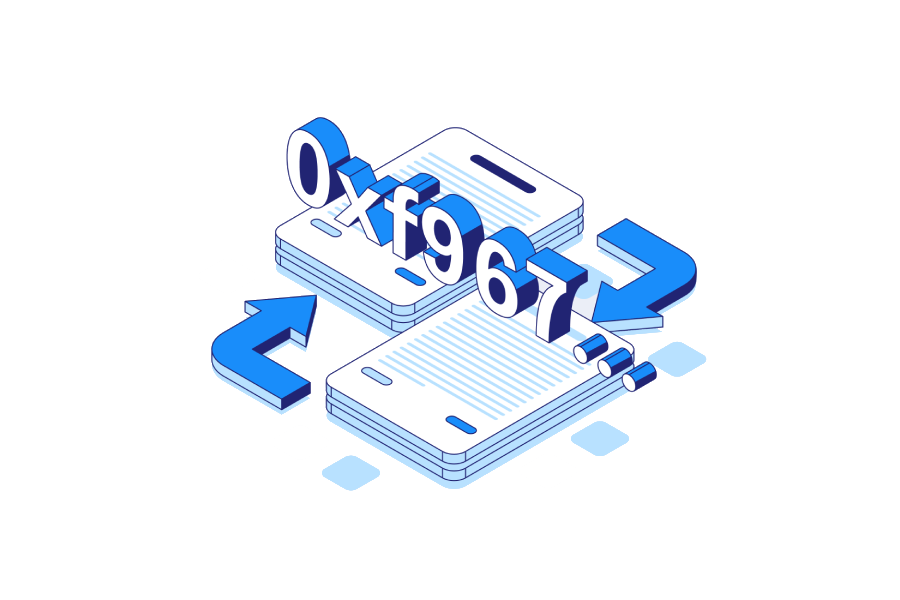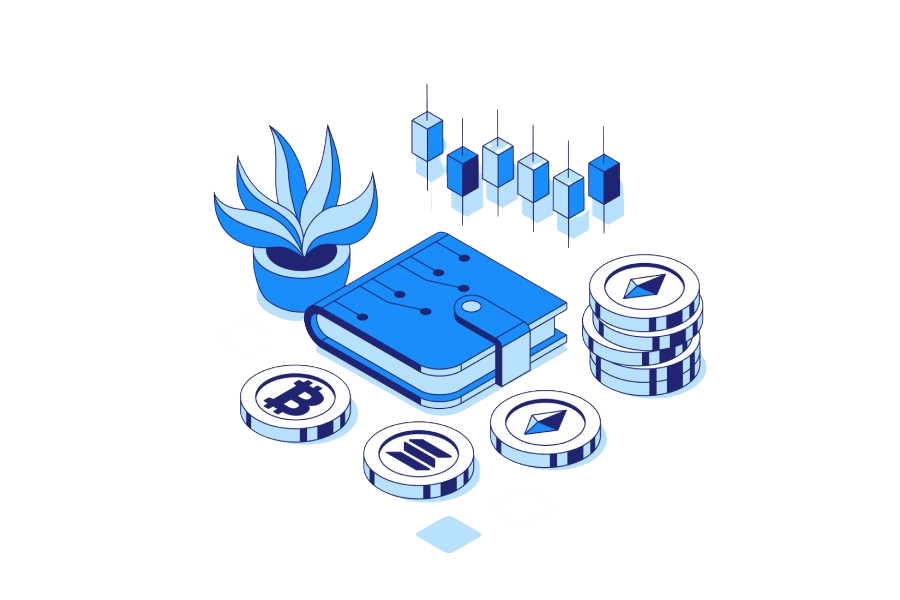What is a Smart Contract?
A smart contract is a self-executing contract that automates the process of verification, execution, and enforcement. It is written in code and stored on a blockchain, making it transparent, secure, and tamper-proof.
Smart contracts operate on a blockchain network, providing a secure and decentralized environment for executing transactions. Smart contracts offer numerous benefits, including efficiency, security, cost-effectiveness, and trust.

Table of Contents
Key Takeaways
- The Ethereum blockchain is the most popular platform for deploying smart contracts, but there are several other blockchain platforms that support smart contracts.
- Smart contracts are tamper-proof and transparent, providing an added layer of security to transactions.
- Once a smart contract is deployed on the blockchain, it cannot be altered or deleted, making it immutable.
- Smart contracts are potentially disruptive to a number of different industries by offering a more efficient, cost-effective, and secure way to transact.
- Smart contracts can interact with off-chain systems through the use of oracles, which are trusted data sources that provide real-world data to the blockchain.
- Advancements in technology, integration with other emerging technologies, and regulatory and legal developments will all play a role in shaping the future of smart contracts.
- While smart contracts have limitations and challenges that need to be addressed, they are a powerful tool that can transform the way we interact and transact in the digital age.
Introduction
The emergence of the technology that underpins crypto – blockchain technology – has revolutionized the way transactions are carried out, and it has also brought about the advent of smart contracts.
Like cryptocurrencies, smart contracts operate on blockchain technology. The importance of smart contracts in the crypto industry cannot be overstated. They enable the automation of complex transactions and eliminate the requirement for intermediaries, thus reducing the cost and time required to complete transactions.
The concept of smart contracts has been around since the 1990s, but it was not until the emergence of Bitcoin and blockchain technology that smart contracts became a reality. In 1996, Nick Szabo, a computer scientist, coined the term “smart contract”, defining it as “a computerized transaction protocol that executes the terms of a contract.”
In this Coinmama Academy article, we will explore the benefits of smart contracts, how they work, their limitations and challenges, and the future of smart contracts in the crypto industry.

Benefits of Smart Contracts
Smart contracts offer a host of benefits to the crypto industry, making them a popular choice for businesses and individuals alike. Here are some of the key benefits of using smart contracts:
Efficiency and Speed
One of the most significant advantages of smart contracts is that they are self-executing, eliminating the need for intermediaries. This automation streamlines the process and reduces the time and effort required to complete transactions. Additionally, smart contracts are capable of handling complex transactions that would otherwise require multiple parties to verify and execute.
Security and Transparency
Smart contracts are tamper-proof and transparent, providing an added layer of security to transactions. Once a smart contract is deployed on the blockchain, it cannot be altered or deleted, making it immutable. The decentralized nature of the blockchain also ensures that the transaction data is distributed across the network, reducing the risk of a single point of failure or manipulation.
Cost Reduction
Smart contracts eliminate intermediaries and reduce the need for manual processes, resulting in cost savings for businesses and individuals. Since smart contracts are self-executing, they can also reduce the need for legal and administrative services, further reducing costs.
Trust and Decentralization
The decentralized nature of blockchain technology ensures that smart contracts are transparent and trustworthy. Transactions are validated by multiple nodes on the network, reducing the risk of fraud or errors. Since smart contracts operate on a peer-to-peer basis, the requirement for a centralized entity to oversee transactions is eliminated. This plays an essential role in reducing the risk of corruption.
How Smart Contracts Work
Smart contracts are computer programs that execute automatically when certain predefined conditions are met. They operate on a blockchain network, which provides a decentralized and secure environment for executing transactions.
Technical Explanation of Smart Contracts
Smart contracts are written in code using programming languages such as Solidity, which is used on the Ethereum blockchain. The code contains the rules and regulations of the contract, including the conditions that must be met for the contract to execute.
Comparison to Traditional Contracts
Traditional contracts require intermediaries such as lawyers, banks, or notaries to enforce and execute the terms of the agreement. Smart contracts, on the other hand, are self-executing, eliminating the need for intermediaries. This reduces the cost, time, and effort required to complete transactions.
Components of Smart Contracts
Smart contracts consist of three main components:
- The Agreement: This defines the terms and conditions of the contract.
- The Code: This is the set of instructions that execute the terms of the agreement.
- The Execution Platform: This is the blockchain network that hosts the smart contract.
Execution of Smart Contracts
Smart contracts execute automatically when the predefined conditions of the agreement are met. In a smart contract for the sale of a house, for example, ownership of the house would automatically be transferred to the buyer as soon as the seller receives payment.
Examples of Smart Contract Applications
Smart contracts have a wide range of applications, including:
- Supply Chain Management: Smart contracts can be used to automate the process of verifying and tracking products as they move through the supply chain.
- Real Estate: Smart contracts can be used to automate the process of buying and selling real estate, including the transfer of ownership and payment processing.
- Insurance: Smart contracts can be used to automate the process of insurance claims processing, including the verification of claims and disbursement of payments.
- Voting: Smart contracts can be used to automate the process of voting, ensuring that the results are transparent and tamper-proof.
Smart Contracts on the Blockchain
Blockchain technology is the underlying technology that enables smart contracts to operate. Smart contracts are deployed on a blockchain network, providing a secure and decentralized environment for executing transactions.
Role of Blockchain in Smart Contracts
The blockchain is a decentralized ledger that records all transactions on the network. Smart contracts are stored on the blockchain, and the terms of the contract are executed automatically when certain conditions are met. The blockchain provides a tamper-proof and transparent environment for executing transactions, ensuring that the contract is executed as intended.
Types of Blockchain Used in Smart Contracts
There are two main types of blockchain used in smart contracts: public and private. Public blockchains, such as Ethereum, are open to anyone and are decentralized, making them transparent and secure. Private blockchains, on the other hand, are permissioned, meaning that only authorized participants can access the network.
Smart Contracts on Ethereum Blockchain
The Ethereum blockchain is one of the most popular platforms for deploying smart contracts. It is an open-source blockchain that enables the creation of decentralized applications (dApps) and smart contracts. The Ethereum Virtual Machine (EVM) is a runtime environment that executes smart contracts on the network. Smart contracts on the Ethereum blockchain are written in Solidity, a programming language specifically designed for the blockchain.
Other Blockchain Platforms That Support Smart Contracts
There are several other blockchain platforms that support smart contracts, including:
- EOS: EOS is a decentralized blockchain platform that enables the creation of dApps and smart contracts. It is designed for high throughput and scalability, making it ideal for applications that require fast and efficient transactions.
- TRON: TRON is a blockchain platform that enables the creation of dApps and smart contracts. It is designed to be fast and scalable, with low transaction fees.
- Hyperledger Fabric: Hyperledger Fabric is a permissioned blockchain platform that is designed for enterprise use. It enables the creation of smart contracts and provides a high degree of privacy and confidentiality.
- Corda: Corda is a blockchain platform that is designed for financial institutions. It enables the creation of smart contracts and provides a high degree of privacy and confidentiality.
Limitations and Challenges of Smart Contracts
While smart contracts offer numerous benefits to the crypto industry, they also have some limitations and challenges that need to be addressed. Here are some of the most significant limitations and challenges of smart contracts:
Immutability and Inflexibility
Once a smart contract is deployed on the blockchain, it cannot be altered or deleted, making it immutable. While immutability provides security and transparency, it also means that any errors or bugs in the code cannot be easily corrected. This can lead to inflexibility and may result in disputes and legal challenges.
Complexity and Bugs
Smart contracts are complex computer programs that require extensive testing and auditing to ensure that they operate as intended. Bugs in the code can lead to errors, vulnerabilities, and security breaches, potentially resulting in financial loss or damage to reputation.
Legal Recognition and Enforcement
Smart contracts are still relatively new, and there are legal and regulatory challenges surrounding their recognition and enforcement. While smart contracts are legally binding, there is still some uncertainty about their legal status in certain jurisdictions.
Scalability and Interoperability
As the adoption of blockchain technology and smart contracts continues to grow, scalability and interoperability are becoming increasingly important. Blockchain networks can become congested, leading to slow transaction times and high fees. Additionally, there is currently no standardized way for different blockchain platforms to communicate with each other, making it challenging for smart contracts to operate across different networks.
Future of Smart Contracts in Crypto
The future of smart contracts in the crypto industry is an exciting one, with the potential for explosive growth and adoption. Let’s take a look at some of the key factors that will shape the future of smart contracts:
Potential for Growth and Adoption
As more businesses and individuals adopt blockchain technology, the potential for smart contract adoption will also increase. Smart contracts offer a range of benefits, including efficiency, security, and cost-effectiveness, making them an attractive solution for businesses across various industries.
Advancements in Smart Contract Technology
Advancements in smart contract technology will continue to improve the functionality and reliability of smart contracts. For example, the use of oracles (like Chainlink), which are trusted data sources that provide real-world data to the blockchain, can improve the accuracy and reliability of smart contract execution.
Integration with Other Emerging Technologies
Smart contracts can be integrated with other emerging technologies such as artificial intelligence (AI) and the Internet of Things (IoT), creating new opportunities for automation and efficiency. For example, smart contracts could be used to automate the process of ordering and restocking inventory in a supply chain.
Regulatory and Legal Developments
Regulatory and legal developments will also play a role in the future of smart contracts. As smart contracts become more widely adopted, governments and regulatory bodies may need to develop new laws and regulations to govern their use. Additionally, the legal recognition and enforcement of smart contracts may become clearer, providing greater certainty and confidence for businesses and individuals.
The future of smart contracts in the crypto industry looks bright, with the potential for significant growth and adoption. Advancements in technology, integration with other emerging technologies, and regulatory and legal developments will all play a role in shaping the future of smart contracts. As the technology continues to evolve, it will be exciting to see the new applications and use cases that emerge.
Conclusion
Smart contracts have revolutionized the way transactions are carried out in the crypto industry. These self-executing contracts automate the process of verification, execution, and enforcement, reducing the cost, time, and effort required to complete transactions. Smart contracts offer a range of benefits, including efficiency, security, cost-effectiveness, and trust, making them an attractive solution for businesses and individuals across various industries.
While smart contracts have limitations and challenges that need to be addressed, advancements in technology, integration with other emerging technologies, and regulatory and legal developments will play a crucial role in shaping the future of smart contracts. As the technology continues to evolve, it will be exciting to see the new applications and use cases that emerge.
Smart contracts have massive potential to revolutionize the way we do business, making transactions faster, cheaper, and more efficient. As more businesses and individuals adopt blockchain technology, the potential for smart contract adoption will continue to grow and grow. Smart contracts are undoubtedly a powerful tool that can transform the way we interact and transact in the digital age.
We hope you enjoyed this Coinmama Academy article! If you have any questions, drop us a line at support@coinmama.com, and don’t forget to follow us on Facebook, Instagram, and Twitter. If you’re ready to start building your own cryptocurrency portfolio, just head to our main website or pick up our free self-custody crypto wallet that lets you store your crypto safely and buy Bitcoin directly in-app.
Smart Contract FAQ's
Here are some frequently asked questions about Smart Contracts:
A traditional contract requires intermediaries such as lawyers or banks to enforce and execute the terms of the agreement. Smart contracts, on the other hand, are self-executing, eliminating the need for intermediaries.
Smart contracts are tamper-proof and transparent, providing an added layer of security to transactions. Once a smart contract is deployed on the blockchain, it cannot be altered or deleted, making it immutable.
Once a smart contract is deployed on the blockchain, it cannot be modified or revoked, making it immutable.
Smart contracts have a wide range of applications, including supply chain management, real estate, insurance, and voting.
Smart contracts on the Ethereum blockchain are written in Solidity, while other blockchain platforms may use different programming languages.
Smart contracts require a blockchain network to operate. However, they can interact with off-chain systems through the use of oracles.
Oracles are trusted data sources that provide real-world data to the blockchain. They can be used to provide information that is not available on the blockchain, improving the accuracy and reliability of smart contract execution.
Smart contracts eliminate intermediaries and automate processes, reducing the need for manual intervention and costly administrative services.
Smart contracts have the potential to disrupt a range of industries by offering a more efficient, cost-effective, and secure way to transact.
Smart contracts are complex computer programs that require extensive testing and auditing to ensure that they operate as intended. Bugs in the code can lead to errors, vulnerabilities, and security breaches, potentially resulting in financial loss or damage to reputation. Additionally, the legal recognition and enforcement of smart contracts may still be unclear in certain jurisdictions.
Table of Contents
Related articles

What is Bitcoin Adoption?

What is a Bitcoin Loan?







